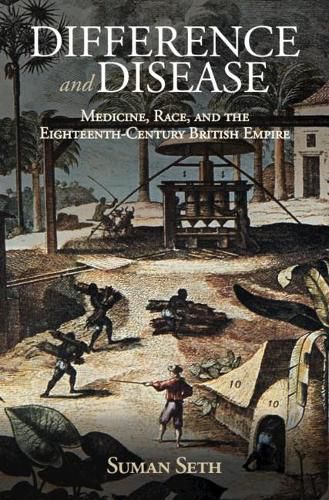Readings Newsletter
Become a Readings Member to make your shopping experience even easier.
Sign in or sign up for free!
You’re not far away from qualifying for FREE standard shipping within Australia
You’ve qualified for FREE standard shipping within Australia
The cart is loading…






Before the nineteenth century, travellers who left Britain for the Americas, West Africa, India and elsewhere encountered a medical conundrum: why did they fall ill when they arrived, and why - if they recovered - did they never become so ill again? The widely accepted answer was that the newcomers needed to become ‘seasoned to the climate’. Suman Seth explores forms of eighteenth-century medical knowledge, including conceptions of seasoning, showing how geographical location was essential to this knowledge and helped to define relationships between Britain and her far-flung colonies. In this period, debates raged between medical practitioners over whether diseases changed in different climes. Different diseases were deemed characteristic of different races and genders, and medical practitioners were thus deeply involved in contestations over race and the legitimacy of the abolitionist cause. In this innovative and engaging history, Seth offers dramatically new ways to understand the mutual shaping of medicine, race, and empire.
$9.00 standard shipping within Australia
FREE standard shipping within Australia for orders over $100.00
Express & International shipping calculated at checkout
Before the nineteenth century, travellers who left Britain for the Americas, West Africa, India and elsewhere encountered a medical conundrum: why did they fall ill when they arrived, and why - if they recovered - did they never become so ill again? The widely accepted answer was that the newcomers needed to become ‘seasoned to the climate’. Suman Seth explores forms of eighteenth-century medical knowledge, including conceptions of seasoning, showing how geographical location was essential to this knowledge and helped to define relationships between Britain and her far-flung colonies. In this period, debates raged between medical practitioners over whether diseases changed in different climes. Different diseases were deemed characteristic of different races and genders, and medical practitioners were thus deeply involved in contestations over race and the legitimacy of the abolitionist cause. In this innovative and engaging history, Seth offers dramatically new ways to understand the mutual shaping of medicine, race, and empire.